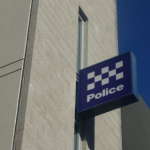Former NSW Police Officer Faces Sexual Assault Charges

29-year old Vaughan Hildebrand is facing multiple charges of sexual assault arising from incidents that allegedly occurred during his time as an officer with the NSW Police Force.
Hildebrand is charged with 51 criminal offences – including 15 counts of ‘sexual intercourse without consent’, 12 of ‘using a carriage service to harass or intimidate’, and ‘child abuse material’ offences – which are said to have occurred between 2010 and 2016 when he was a police officer in Sydney.
He was suspended without pay early last year, after complaints by 10 separate women. He later resigned.
Harassment and intimidation
Hildebrand was refused bail and has been behind bars since May 2017, after being charged with offences relating to stalking, harassment and misconduct in public office.
It has been alleged that he used restricted police data and various social media accounts under false names to coerce women into supplying intimate photos of themselves.
It has further been alleged that he pretended to be a plastic surgeon to obtain images of a woman’s breasts. After receiving the images, he allegedly threatened to share them with the victim’s partners and the general public.
The former officer’s criminal defence lawyers attempted to have him released on bail in June last year, arguing he was being ‘tormented’ by other inmates and that his mental health had been deteriorating.
In November 2017, seven additional women came forward accusing the former officer of sexual misconduct. And last month, another two women made allegations of sexual assault against him.
The NSW Police Force has distanced itself from their former employee, with acting assistant commissioner David Donohue saying he is “horrified” by the allegations.
Above the law
While police officers take an oath to uphold and enforce the law – and are given a wide range of special powers and issued with lethal weaponry – there are many examples of ‘bad cops’ who abuse their positions by committing serious criminal offences against those they are paid to protect.
Last year, more than 50 NSW police officers were facing a range of serious criminal charges, including sexual assault, child sexual assault, a range of physical assaults and perjury.
Many of these officers remained on paid active duty while their cases were being determined.
Police policing themselves
The system in NSW has been criticised for allowing police to police themselves – with an absence of an independent oversight body with sufficient power and resources to investigate complaints, let alone prosecute and discipline offending officers.
The Law Enforcement Conduct Commission (LECC) was introduced in 2016, with the state government touting it as the ‘biggest overhaul to police oversight in twenty years’. The body replaced the functions of the Police Integrity Commission (PIC), the police division of the NSW Ombudsman and the Inspector of the NSW Crime Commission.
However, the organisation lacks the resources and powers to force accountability and change the toxic culture of misconduct that is rife in the force. Glaring deficiencies in the current regime include the fact that:
- police continue to investigate the vast majority of allegations of misconduct internally,
- police continue to investigate all critical incidents themselves- with the LECC merely ‘overseeing’ these investigations, and
- the LECC only has sufficient resources to investigate a handful of the thousands of complaints against police officers every year.
This means police are still left to ‘police themselves’, which promotes a culture whereby officers are unlikely to be held to account for brutality, corruption and other forms of misconduct.
Innocent unless proven guilty
Mr Hildebrand’s matter is next listed in Central Local Court on 15 February, and it is important to bear in mind that he is innocent until and unless he is proven to be guilty in a court of law.
Given the current strict bail laws in NSW, the former officer may need to wait some time before he sees the outside of prison walls.








